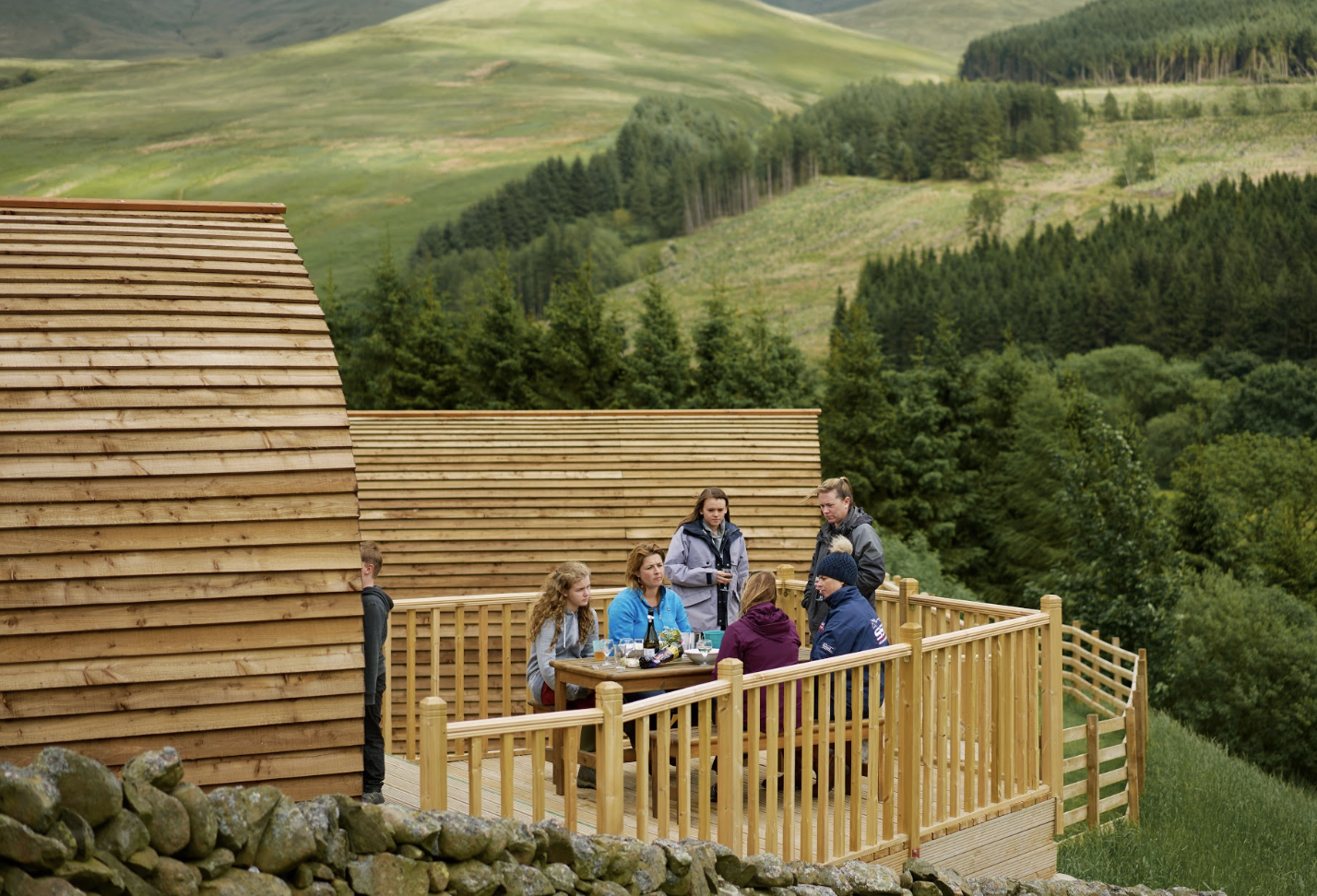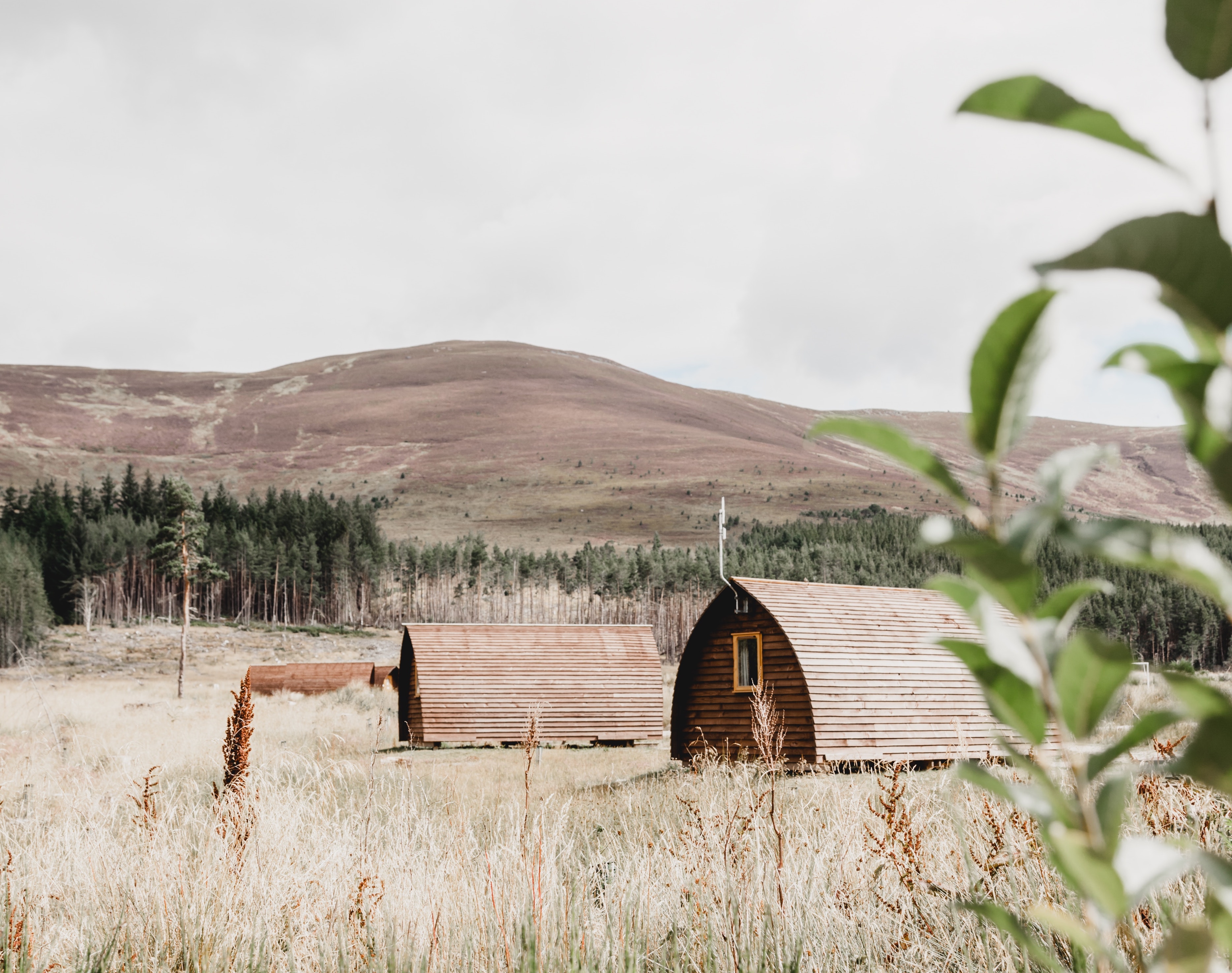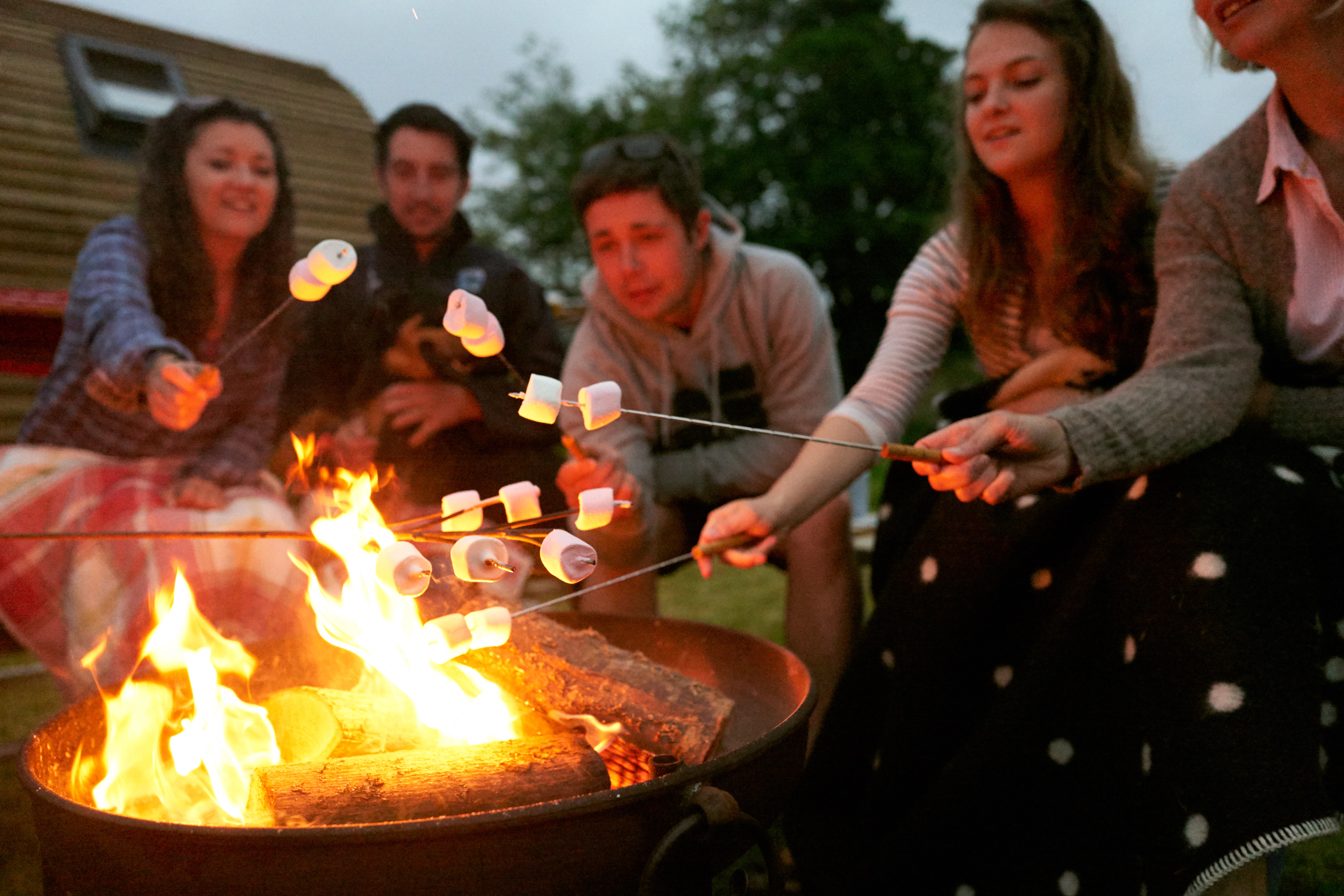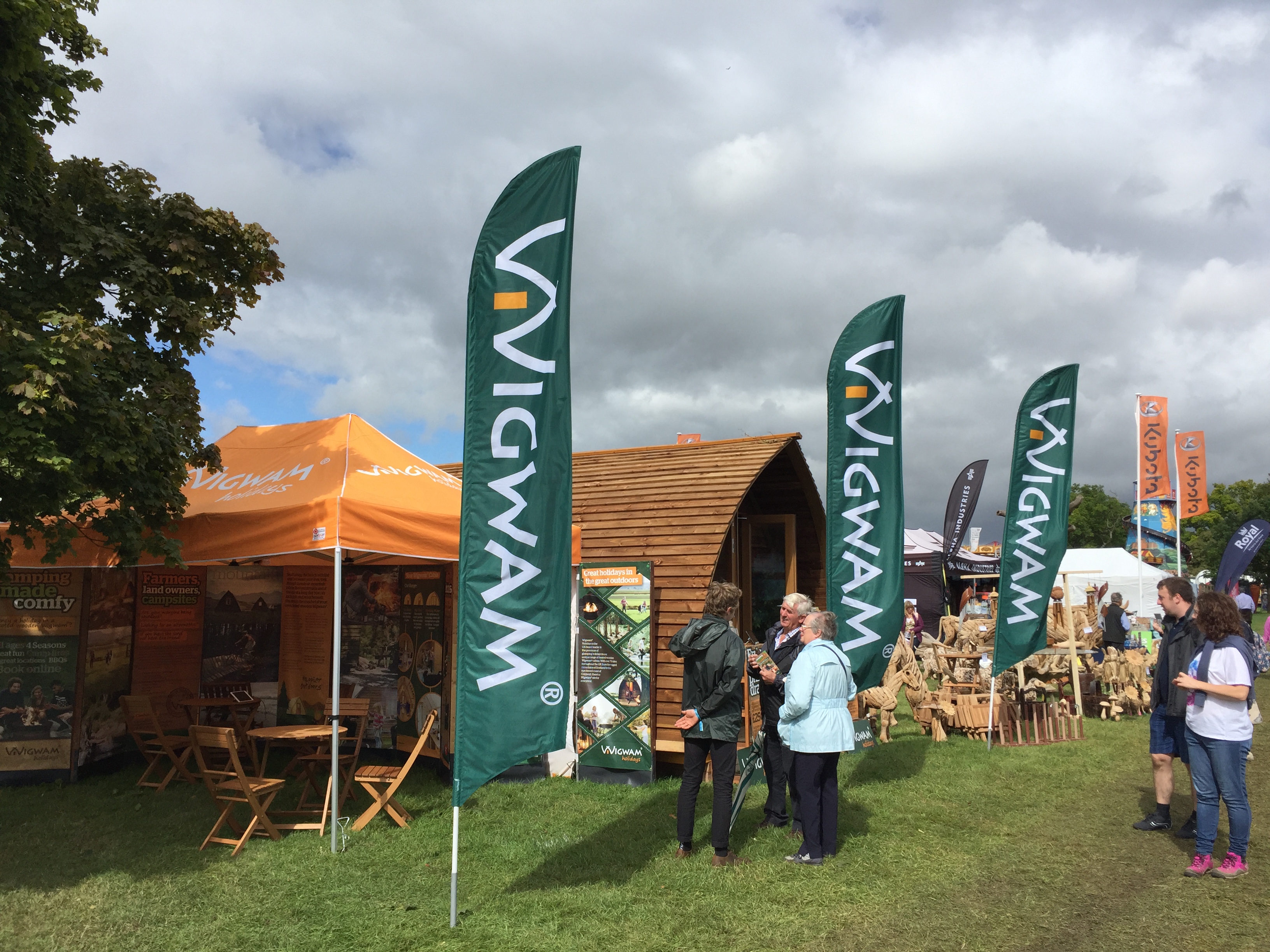
How To Start A Glamping Business - The 5 Essential Steps
So you’ve done a bit of research and have decided that you’d like a slice of the glamping marketplace. Congrats! It’s a great industry to be involved in, and it’s definitely having a bit of a moment: by 2020, the UK’s camping and caravanning industry is set to be worth £3.2 billion, with a lot of the growth being attributable to the rise of glamping.
But where to start? Setting up a business of any kind is hard work, so to help you get started, we’ve compiled some of our advice below into five distinctive steps.
These are by no means exhaustive, and we’ll be expanding on many of the points below in other blog posts. To get started with planning, read on for five steps essential to starting your glamping business.
1. Choose your site
When you’re scouting for the perfect site for your campgrounds, there are a few things to keep in mind so that you end up with a site your guests will love. You might be looking into some farm diversification on your own land or considering renting or buying some land nearby. Whichever category you fall into, keep the following tips in mind when looking for your perfect spot.
- The ideal spot is south-facing, quiet and gives you a feeling of being at one with nature. It should also be relatively flat.
- Find somewhere you'd like to camp yourself - this is a good indication that others will enjoy the spot as well. If in doubt, pitch up a tent and spend a night at the spot you’re considering. Afterwards, ask yourself whether you enjoyed the experience.
- Consider access for both pedestrians and vehicles. Could guests drive right up to their camping pods or is there a good spot for parking no more than a few minutes’ walk away?
- Think about the services you’ll need to install - namely running water and electricity as well as sewage disposal. Is there potential to connect to the mains or will you need to rely on things like septic tanks and bottled gas? Get some estimates for installing the services you’ll need.
We have a blog post coming out very soon that will be all about getting your glamping site ready for visitors, so look out for some more tips on choosing the perfect location for your business there.

2. Figure out your permissions and finance
We have a blog post dedicated to planning permissions coming out very soon, so we won’t go too in depth into this subject here. Suffice to say, you’ll need some kind of planning permission in almost all cases, so it’s important to get this process right. You’ll also need to obtain relevant building warrants for things like drainage.
Remember that it’s on you to sell your vision to both the local authorities and the local community. While it is more expensive, you can save a lot of time here by hiring a planning consultant. If you choose to join the Wigwam® Franchise, you’ll have access to our helpful team with years of experience on planning permissions who’d be happy to advise you on getting your paperwork in order.
When it comes to financing your glamping site, you have a few different options. These are, from cheapest to most expensive: your own money, bank loans and “other”. The “other” here could be things like asset finance, crowdfunding, franchise finance and diversification grants.
Diversification grants are something we’ve got lots of experience in here at Wigwam® Holidays: over the years, we’ve helped our franchisees raise over £1,000,000 in diversification grants for their glamping sites.
3. Consider your accommodation
There are many different kinds of accommodations to choose from for your glamping site. You should consider the space and budget you have, as well as what kind of glamping you want to offer before making up your mind. Some of the most popular options include canvas yurts and tipis, wooden camping pods, treehouses and log cabins, just to name a few.
If you want to host guests only in the warmer months, canvas tents could be a good option. They’re not great for winter camping in the UK for obvious reasons, but provide an easy and affordable option for summer glamping.
Treehouses are quite trendy and it’s easy to see why: who wouldn’t want to relive their childhood fantasies of having a really awesome treehouse all to yourself? However, you’ll need suitable, very large trees to support them. Since there aren’t many options for ready-made glamping treehouses out there, you’ll probably have to design one with an architect, which obviously comes with added costs as well.
For all-year-round glamping, wooden structures like Wigwam® camping pods and log cabins are a great option. They offer more protection from the elements than canvas tents and you can install things like heating, electricity and running water inside for a truly relaxing and comfy camping experience. Wigwam® cabins come in four distinct models, all of which stay cosy and warm all year long.
4. Add the glam factor
It’s called ‘glamping’ for a reason. You’ll have to figure out how to add the wow factor that separates you from your competition. Unfortunately, you can’t just set up some yurts and bunting and expect business to start rolling in anymore, so consider what unique selling points you can offer.
Maybe you could install some hot tubs? Offer pottery classes? Give a chance for your guests to take part in the lambing experience? The possibilities are endless. Fire pits are a popular option on Wigwam® sites, as they’re affordable and guests love them. For some more ideas for what kind of things you can use to set yourself apart from other glamping sites, check out our Inspiration page.

5. Choose between a franchise & going it alone
One of the biggest things you’ll need to decide is whether you want to start your own small business or join an existing franchise. There are pros and cons to both options and we’ll go over a few of the most important ones below.
Starting your own business
The idea of entrepreneurship is pretty romantic: there’s no boss to answer to, you can set your own hours and don’t have to ask for permission if you want to book a last minute holiday. However, the reality of small business ownership is somewhat more complex.
It’s hard to start making a name for yourself from scratch and deal with contractors, planning authorities and taxes all on your own. However, if you have a very unique vision for your glamping business and feel like there isn’t a franchise out there that meets your needs, going it alone might be your only option.
Luckily, there are many resources you can take advantage of to make your life easier, from cloud-based accounting tools for SME’s and business advice providers to online travel agent sites that can offer you some extra visibility.
Joining a franchise
Becoming part of an established franchise eliminates many of the headaches associated with entrepreneurship while still giving you a good deal of freedom for running your site.
For example, if you join the Wigwam® franchise, you can set up your site quickly, with your ready-built camping pods delivered right to you You’ll also have access to expert support for your IT, operations and marketing. You also get a beautiful website and booking system as well as access to an enthusiastic existing customer base for a well-known brand.
Basically, joining a franchise offers you more of a safety net than if you were to set up shop on your own. Being part of a franchise can also give you a helping hand if you’re applying for a bank loan, since banks like existing brands as they’re more stable than new small businesses.
The drawback to joining a franchise is that you have to meet certain specifications. For example, to start a Wigwam® site, you have to purchase a minimum of six camping pods and agree to an initial franchise fee and ongoing charges for the running of your site.

However, we try to make sure we offer the greatest amount of flexibility possible for our franchisees, whether they’re landowners or tenant farmers, and offer lots of opportunities for business growth.
With the oldest Wigwam® cabin in use being 23 years old, investing in Wigwam® cabins is great for sustainable, long term business.
“If you buy into Wigwam® Holidays you get quality workmanship and a product that you can rely on. We feel part of a community offering comfort and support. We have invested in a brand that we can trust.”
- John & Lizzie Ridout
Wigwam® Holidays Penbugle, Cornwall

